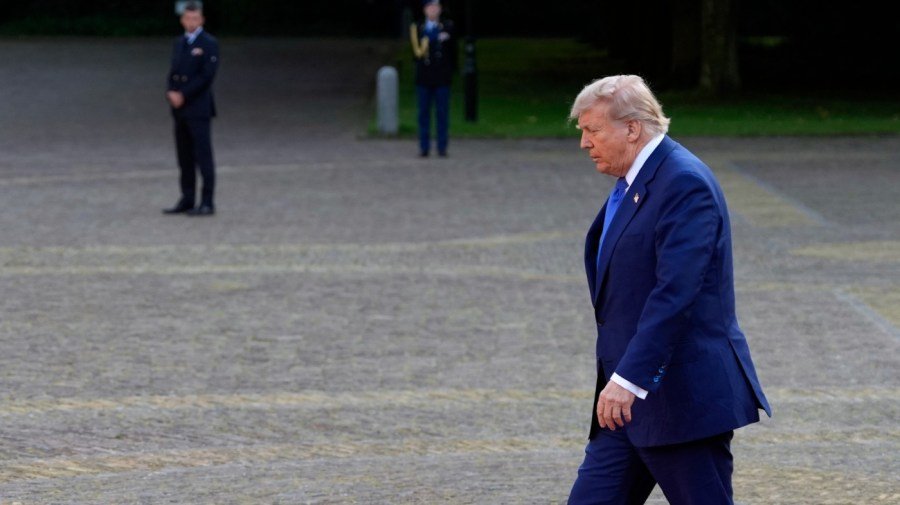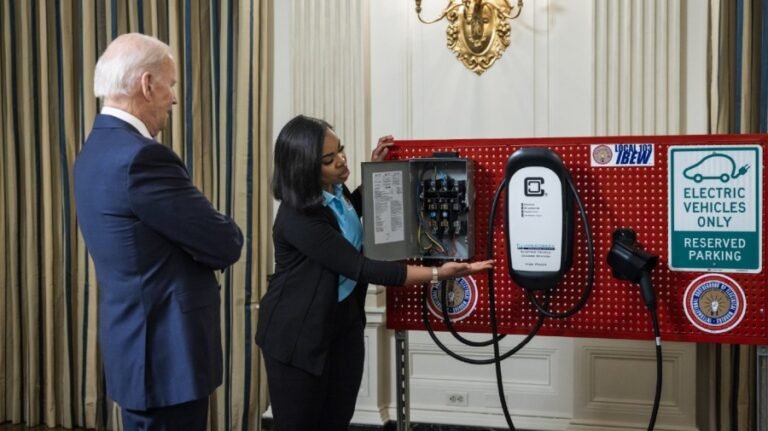
President Trump’s strategy of playing both sides is coming into question as he fumed over Israel and Iran’s continued fighting while demanding peace in the region.
The president was so frustrated Tuesday morning he dropped an expletive on the White House lawn on his way to the NATO summit, contending that the two adversaries “don’t know what the f— they’re doing.”
He also offered a window into his handling of the situation in which he stressed criticism mostly for Israel but also Iran in his quest to end the fighting: “All I do is play both sides.”
Whether Trump’s strategy to have a foot in each camp will be successful depends on if Israel and Iran will abide by his desire to stop fighting in the long term, but some foreign policy experts think it will take more disciplined diplomacy to reach a peaceful end.
Elliott Abrams, U.S. special representative for Iran during Trump’s first term, argued that if the administration took a more subdued approach and called on Israel to de-escalate instead of retaliate when Iran continued strikes, Trump would have likely not gone on his “tirade” on Tuesday.
“With the announcement of the ceasefire and the Iranians cheating, the Israelis were going to respond. They did respond. And I think that had he or Rubio called Netanyahu and said, ‘We don’t want to lose the ceasefire. So how do you plan to respond? And, don’t blow up Tehran, do something moderate.’ That would have worked,” Abrams said. “There was no need for a public and private tirade.”
Abrams contended that while Trump may have been posturing toward both countries, his public outburst did the situation few favors.
“You never know with Trump how much is performative, but I think there was no need for what he did,” added Abrams, senior fellow for Middle Eastern studies at the Council on Foreign Relations.
Trump allies have argued that the president’s flexibility and willingness to pivot on a dime is an asset, particularly when it comes to foreign policy. Where critics see Trump as having few strongly held beliefs and a lack of commitment to long-standing allies, the president’s supporters see him as able to shift his tone and approach to get whatever result he desires.
White House officials this week have trumpeted that “only” Trump could have produced the results he did with Iran, a nod to his unorthodox approach that can change from day to day or hour to hour depending on the situation.
Fred Fleitz, vice chair of the America First Policy Institute’s Center for American Security, argued some tension between Trump and Israeli Prime Minister Benjamin Netanyahu is to be expected, but he emphasized that Trump is unwaveringly pro-Israel despite his public frustrations.
“Netanyahu is not Trump’s puppet, and he has to look out for the interests of his nation, not simply do what Trump tells him to do,” Fleitz said. “And I think that creates conflict from time to time.”
One Trump ally noted that the Iran-Israel conflict was far from the first time the president has deployed an “all sides” approach. They argued Trump has used it at times when addressing the war in Ukraine, alternately attacking Ukrainian President Volodymyr Zelensky and bellowing that he is unhappy with Russian President Vladimir Putin as he attempts to bring the two sides to the negotiating table.
A version of that was also on full display Tuesday as Trump posted a cascade of Truth Social posts as he was flying to the Netherlands for the NATO summit this week. While he left the White House just after sunrise in a huff, his Truth Social posts soon began suggesting that the ceasefire was holding and that he was telling Israel to turn their planes around.
By the time Trump spoke to reporters on Air Force One, he relayed that he spoke to Netanyahu and that he was optimistic a truce would hold.
“The ceasefire is very much in effect, and I think we’re going to keep it there for a long time,” he said.
“I said, ‘You got to turn back the planes.’ And there was going to be a retaliation this morning by Israel and I said, ‘You got to call back the planes. It’s enough, it’s enough.’ And they did, which I respect very greatly,” he said.
By late Tuesday, the ceasefire appeared to have been held by both Israel and Iran with few if any reports of Tehran striking Israel after Trump’s earlier remarks. Trump said there wouldn’t be consequences for the fighting that occurred overnight when the ceasefire was supposed to initially begin.
Sen. Lindsey Graham (R-S.C.), one of the most hawkish Trump allies in Congress, argued in response to Trump’s outburst that Israel and Iran can’t be lumped together.
“I can understand his frustration, but there’s no moral equivalency between Iran and Israel,” Graham said on Fox News. “Israel is our friend, Iran is our enemy.”
The U.S. entered into a days-long conflict between Israel and Iran when it struck three Iranian nuclear sites on Saturday with some of the most powerful ammunition in the U.S. arsenal.
Iran struck back Monday with several missiles over Qatar where a large U.S. military base is located but gave fair warning to the U.S. before doing so, which prevented casualties, according to Trump.
Trump announced the parameters of a ceasefire deal later Monday, but fighting between Iran and Israel continued overnight, much to the president’s chagrin Tuesday morning.
Abrams said he was surprised that Trump was upset with Israel and Iran, but added, “another thing you never know … what is the factual basis for his comment.”
He added, “God knows what someone said to him over the phone or what tweet he read that set him off. He may actually not have understood the situation.”






